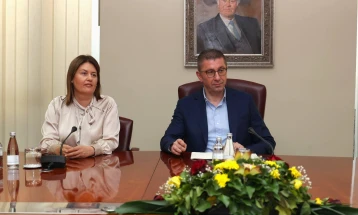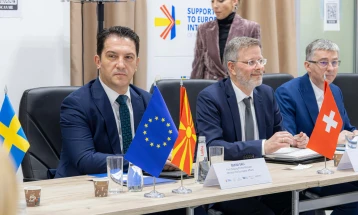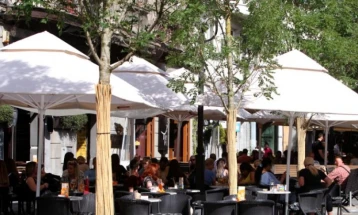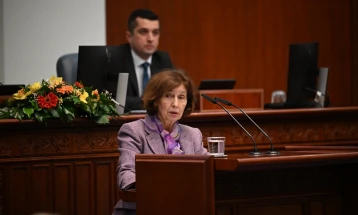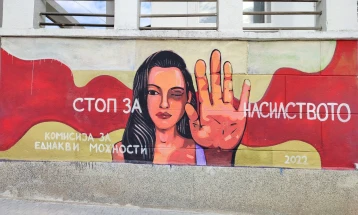Macedonians make online purchases once or twice in three months, orders usually up to EUR 50

Skopje, 11 November 2022 (MIA) – Macedonians make online purchases once or twice in three months, the orders are usually up to EUR 50, and most of them are from local e-retailers. Online shoppers buy clothes the most, and furniture and food (restaurant deliveries) the least, shows the latest report of the E-commerce Association.
The report entitled "Overview of the analysis of e-commerce (2022) in the Republic of North Macedonia and comparison with the region and European countries” was presented on Friday by the Association’s President Nina Angelovska at the fifth edition of the e-commerce conference “E-commerce: Accelerate!”.
“The value of transactions made by Macedonians with local e-retailers in H1 2022 is Mden 12 billion, and is 22 percent higher compared to H1 2021. The fact that 110 new e-stores were opened in H1 2022 is also encouraging, indicating that the upward trend continues in the use of devices that take payment cards at virtual points of sale,” reads the report.
As regards the use of e-banking services, North Macedonia sees a significant increase to 31 percent of the population using the Internet, but this is not enough – the country only ranks better than neighboring countries, while 66 percent of Europeans use the Internet for e-banking.
However, 85 percent of Macedonians use the Internet for social networks and are in the top ranks. All Balkan Internet users like to chat the most and send e-mails less. Montenegrins take the lead in social media participation, instant messaging and reading news online, Serbs in searching information about products/services and health-related information, while Bosnians in selling products and services online, although in almost all other online activities they are bottom ranked.
Angelovska pointed out that although data show growth of e-commerce in the country, it is still ranked at the bottom compared to European countries, and lags behind some of the countries in the region in most indicators.
“Data show growth in almost all indicators. For example, 46 percent of Internet users buy online, there is a significant increase in the use of Internet banking and further growth in online transactions, but still this is small growth compared to the countries of the European Union. That's why we have to accelerate the development of e-commerce to jump a few places ahead from the bottom,” said Angelovska.
Deputy Chief of Mission at the German Embassy in Skopje, Otto Graf, said that because the countries in the region are relatively small with small populations, when considering e-commerce it is very difficult to establish successful businesses at the local level.
“It’s a pleasure to see that the E-commerce Association in North Macedonia is the most successful in the region, which makes us all the more glad to be able to participate here. The question is how your business can be improved by using public instruments. I believe one of the great opportunities you will have during this conference is also to formulate what are your needs and what are your wishes for improving e-commerce in the future,” said Graf.
Head of Cooperation in the Delegation of the European Union to North Macedonia, Steffen Hudolin, noted that in 2021, 90 percent of people between the ages of 16 and 74 used the Internet in the European Union, while 74 percent of them bought products or services online.
“The highest volume of users who buy products and services from the Internet is in the Scandinavian countries, about 90 percent. On the other hand, only 44 percent of people in Romania shop online, 42 percent in Bulgaria, and in North Macedonia only 30 percent of Internet users shopped online during last year,” said Hudolin.
He added that Western Balkan countries, as well as the CEFTA countries in general, are bottom ranked in these statistics in Europe.
Last year, the e-commerce conference brought together more than 400 participants from 150 companies, organizations, universities and government institutions from the country and the region, and 30 speakers from 10 countries gave presentations.

